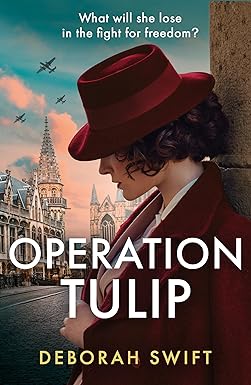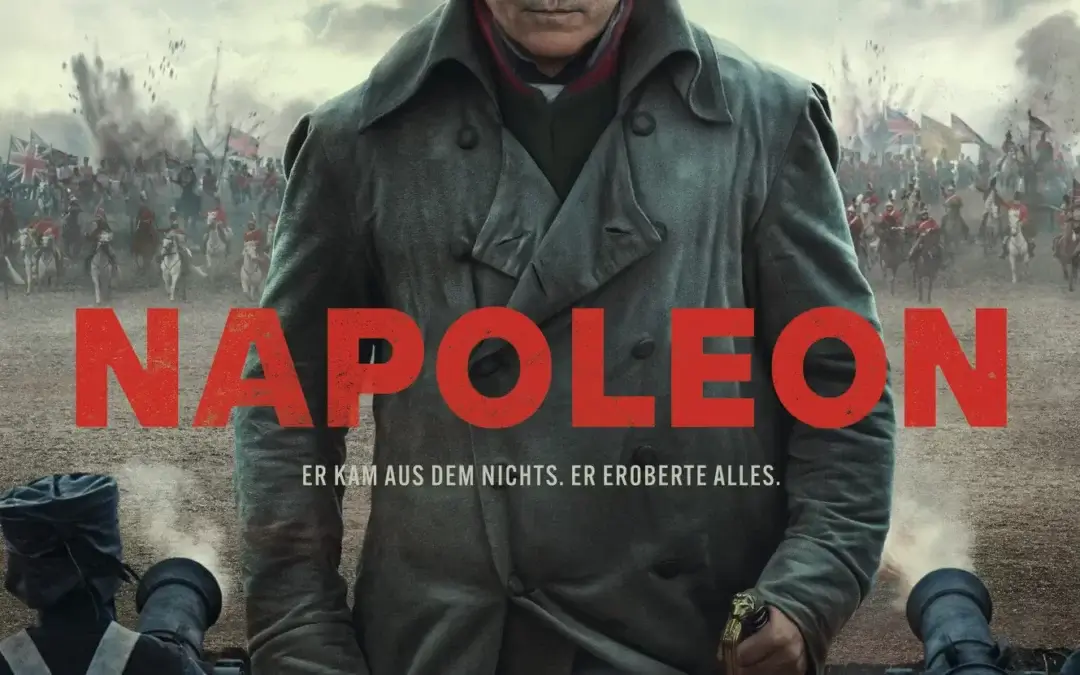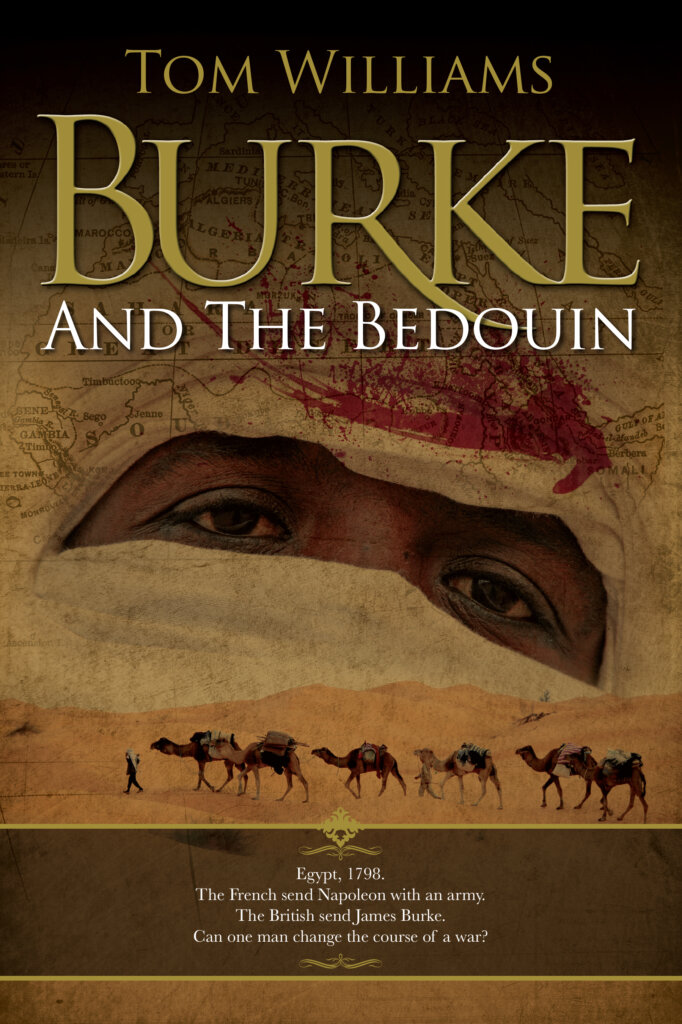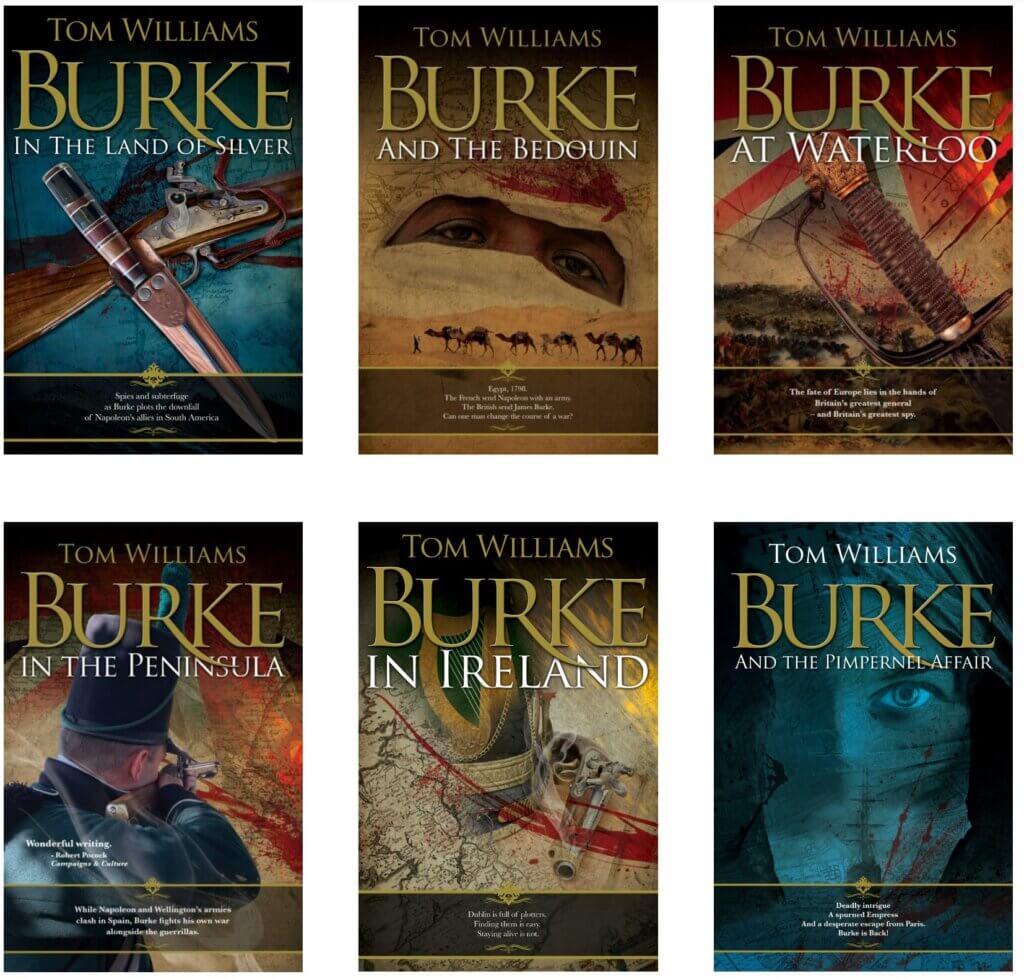
by TCW | Jul 5, 2024 | Book review
Operation Tulip is the third and final book in Deborah Swift’s World War 2 Secret Agent series. Our heroine, Nancy Callaghan, started the war with the SOE, as a cipher clerk at their offices in Baker Street. She went on, though, to become a field agent, working as a radio operator in occupied Holland.
Operation Tulip is essentially a spy thriller. I won’t detail the plot because of spoilers. I hope you’ll read it and enjoy it for yourself. It really is a very good read. Deborah Swift is one of those writers who can really hook you into a story and (very unusually for me) I twice nearly missed my stop while reading Operation Tulip on the Tube.
Swift not only tells a good yarn but packs in a lot of history. It’s fair to say that she doesn’t like the Nazis. This was once such a given that it seems odd to be remarking on it, but nowadays so many people are prepared to suggest that extreme right wing politics has something going for it that it is worth reminding ourselves what happened when Europe last decided to give fascism a go. Swift is unsparing in her descriptions of Nazi atrocities. As her historical note (well worth reading) points out, in the winter of 1944/5, when this story is set, more than 18,000 Dutch civilians starved to death with a further 980,000 classed as malnourished. In places, Operation Tulip is not an easy read.
Given the amount of historical detail, I would have welcomed more about the relationship between the SS and the Gestapo. I suspect my interest in the details of the organisation of the Nazi party and its agencies is not widely shared but lots of people are interested and, given that both the SS and the Gestapo feature a lot in the story, I worried about the details of the relationship between the two. I would have liked more about this, even if Swift had felt it would have been better dealt with in her historical note.
Swift is such a good storyteller that even a subplot which sees her boyfriend mounting a one-man rescue operation across the allied frontline manages to carry you along, although here we are moving rapidly away from the nitty gritty detail of SOE operations into James Bond territory. It’s all terribly readable, though, and certainly adds even more excitement and tension to an already gripping story.
In summary, this is a thrilling spy story set against a historically detailed background. I enjoyed it Immensely and I’m sure many others will too.
Operation Tulip goes on sale on 10 September and is available to pre-order now.

by TCW | Mar 19, 2024 | Book review
I’ve not been doing much writing over the last few months which has at least meant that I’ve been able to catch up on some of my reading.
I’ve had Tipping the Velvet on my list of books I want to read for ages and now I’ve finally got round to it. There’s an Afterward by the author, Sarah Waters, where she complains that “like many first novels by inexperienced authors, it is baggy and over written.” I’m nervous about disagreeing with her so much – she wrote it, so you’d think she’d know – but this is just wrong. I loved this book on so many levels but the first thing to grab me, from the very first paragraph, was the sheer wonder of the writing. Sarah Waters can summon up a place, a feeling or a person with apparently effortless prose. And that’s before we get to the story.
According to Waters herself, it’s a romp. It’s also, of course an exploration and celebration of lesbian history and gloriously, obscenely, wonderfully filthy.
Besides the sex, there is lovingly indulgent praise of the joys of the Whitstable oyster, a brilliant evocation of the music hall of the 1890s, an exploration of East End life and the birth pangs of socialism and, ultimately, [SPOILER] a surrender to romantic love and the joys of domesticity.
It’s one of those wonderful books that is widely and lavishly prised and which turns out to be even better than its reputation.
by TCW | Jan 19, 2024 | Book review
Every year I point out that this is not a book blog but every year there seem to be so many reviews… 2023 has been a comparatively quiet year with only 11 books. Click on the titles to go to the full-length reviews.
As ever, the majority of the books reviewed are historical, but there are a few contemporary novels too.
Historical
Wellington’s Smallest Victory: Peter Hofschroer
I have often visited Siborne’s model of the battle of Waterloo, which is displayed at the National Army Museum. I love it, despite the fact that in one very important aspect it is totally misleading. Peter Hofschroer’s wonderful book explains why and includes lots of fascinating detail on the battle. A must read-title for Waterloo fans.
This Bloody Shore: Lynn Bryant
I’m a huge fan of Bryant’s Manxman series, looking at the Peninsular War from a naval standpoint. This is the third in the series and I wholeheartedly recommend it.
The Gods of Tango: Carolina De Robertis
Obviously I like history and I love tango, so i would be enthusiastic about this book even if it wasn’t simply one of the best novels I have read in a very long time. I can’t begin to summarise how good it is in this snippet. Read my full review and then please go on and read the book.
Three books by Deborah Swift
I’m something of a Deborah Swift fan. She is an astonishingly prolific author and writes historical fiction in several different periods. Two of these, The Silk Code and The Shadow Network are set in World War II while the third, The Fortune Keeper takes place in Renaissance Venice. Swift’s ability to write convincingly about such different periods (she has good line in 17th century England as well) is astonishing and she has gripping plot lines too. Recommended.
The Illusions: Liz Hyder
I should have loved this book. It’s got conjurers, history and supernatural happenings, but it just didn’t work for me. I honestly can’t recommend it, but that doesn’t mean you won’t like it.
Contemporary
Legacy: Chris Coppel
This is a supernatural horror story: not my usual sort of thing, but the author contacted me and asked me to review it and the opening pages gripped me enough to carry on to the end. It’s a very good example of the genre.
The Retreat: Karen King
A mystery with more than a touch of romance from the ever-reliable romantic novelist, Karen King. It’s a fun, light read, likely to appeal to Agatha Christie fans.
Ailish Sinclair’s dance trilogy
I loved the first book in this trilogy, Tendu. It’s got sex and ballet and a touch of X-men superpowers. What’s not to like? The second in the series, Cabriole, didn’t work as well for me but, so far, the third, Fouette, has me completely gripped.
Me, me, me!
Beside reading all these books by others, I managed to put out two books of my own this year. As with the books reviewed, my efforts were partly historical (Burke and the Lines of Torres Vedras) and partly contemporary (Monsters in the Mist). I obviously haven’t reviewed them, but others have said:
I can heartily recommend this thrilling adventure
Amazon review of Torres Vedras
100% recommend
Amazon review of Monsters in the Mist

by TCW | Nov 28, 2023 | Book review
Here we are with Book 2 of Ailish Sinclair’s ‘A Dancer’s Journey’. Think of it as the second act in a three act ballet – the one where everyone runs around in a riot of colour and sexuality (more or less explicit depending on the date of the original production).
We start with Aleks and Amalphia back in the castle after the drama of Tendu. All seems well, but Aleks is worried that Amalphia is being drawn into a permanent relationship without any other life experience. She should, he thinks, live life on her own for a while, meeting other men and finding out what the city has to offer, rather than burying herself in a Scottish rural idyll.
It’s not a totally mad idea and it sets us up for whole novel’s worth of sex and experimentation but – I don’t know, it doesn’t quite do it for me.
Re-reading my review of Tendu, I said Amalphia came over as very young and slightly out of her depth sexually. This goes double (triple, literally at one point) in Cabriole. Perhaps it’s just that I’m a sad old man, but the frantic sex and the constant angst got me down a bit. This is a girl who is beautiful (she always denies it but the modelling shoots give you a clue), talented and sexy, but who spends so much time and energy moaning.
“I was aware that my state of mind was not quite as balanced as it should be; it took very little to send me into a state of dread. A sweet and sickly scent had me recoil and stagger back in the dressing room one afternoon. Someone was wearing the perfume that Michelle had always used… The other girls looked at me and turned away, my role as social outcast more solidified than ever.
At home too, irrational panic would sometimes rise. Was the pain in my legs my own or was I sensing that Aleks was ill or hurt?”
She drifts straight into a job with a well-respected company and I know enough about ballet to have some idea of just how amazing that would be to most people just starting out. Most outrageously, a lover has given her a luxury apartment in London: seven figures worth of property in a city where many young people (especially in the arts) dream of any sort of flat at all. (A dancer friend of mine was kept awake by the sound of rats running across the ceiling of her room.) Does she just luxuriate in the wonderfulness of her life? No, she’s in her early twenties, so she just works on her inner Emo.
What should make it all more fun (for her and the reader) is the sex. Lots of it. Lots of boys, lots of permutations. But it doesn’t really work. She finds that kink (very mild kink, if truth be told) isn’t really doing it for her. And it’s all really quite tame. I live in London. I have dancey young friends. Honestly, Malph, darling, what you’re describing is what people I know call ‘Friday’. (And, to be clear, I have the dullest, most monogamous life you can imagine and even my friends are more exciting than this.)
The story (and the sex) only really comes alive when Aleks returns to the scene which, fortunately for the reader and Amalphia, is quite often. He’s all Ukrainian and godlike, turning her on by speaking Ukrainian in bed. (Side note: why is this sexy? The only time this has ever come up in conversation with my friends was Czechs who insisted that English was the sexiest language for lovers. Perhaps, in the interests of scientific enquiry, I should run a survey.) He is a brilliant character.
There’s another man. I can’t say who because Spoilers. In comparison to Aleks he is, frankly, dull. But nice. And good.
Amalphia is torn. How to resolve the agonising choice she faces: the amazing sex god or the nice guy who truly and straightforwardly loves her.
This is the crux of the book, the point that justifies everything that has gone before. And, sadly, I can’t say anything about it because if I do then Ailish (and possibly you, dear reader) will have to kill me for ruining a satisfying conclusion. Because the conclusion really is good. According to Ms Sinclair, it was too shocking for her publishers to cope with. And, unlike all the sexual shenanigans, it’s genuinely different.
Cabriole was always going to struggle to keep up with Tendu. Tendu had a mad scientist and terrible experiments in a secret dungeon and lots and lots of Aleks (OK, maybe I’ve got a bit of a crush on Aleks) and it was totally insane, but huge fun. Cabriole is more a journey through a confused young woman’s life and I seem to know enough confused young women (at my age, everyone seems young) not to find the fictional versions that exciting. But it’s a fun story and Sinclair writes well and the insights into the ballet world are interesting and, by the end, I’m held again. The third book in the series should be well worth the wait.
Cabriole is available on Kindle at £3.99 (https://www.amazon.co.uk/Cabriole-Dancing-City-Dancers-Journey-ebook/dp/B0CGJ1QP4G) or in paperback at £13.99.

by TCW | Nov 23, 2023 | Napoleonic history
I’m back from watching Napoleon and, given that many of the people I know (and thousands of those I don’t) will be rushing to share their views, I thought I’d join in.
Is it a good movie? I thought so (though my partner, who watched it with me, was not convinced). It is a wonderful piece of cinema. The fact that we watched it on a huge IMAX screen helped. It is, in every sense, a big film and worth catching in the cinema. Waiting for it to turn up on Apple TV may be a mistake.
What it isn’t is a film about Napoleon, the historical character. It’s best viewed as a romantic drama loosely based on the characters and events of Napoleonic France. There’s no point in playing every historian’s favourite game of ‘spot the mistakes’. They start in the first few minutes of the film, which are so determinedly ahistorical as to suggest that Ridley Scott is making it plain that this is not a conventional historical drama. This is historical entertainment for a generation brought up on the Amazon version of Vanity Fair or on Downton Abbey.
I enjoyed it because I liked the interpretation of the romance of Napoleon and Josephine. Josephine has a significant role in my book Burke and the Pimpernel Affair, so I’m interested in her character, but I do not claim to be an expert. The way the relationship is shown in the film seemed credible to me even if some of the details did not. How you feel about Scott’s take on Napoleon and Josephine’s marriage will probably define how you feel about the film as a whole because everything else is subordinated to it. Most notably, Napoleon abandons his army in Egypt not because of the military and political imperatives that drove him back to Paris but because Josephine has been having an affair. Whilst it’s true as Ridley Scott points out, that I — and other, better, historians — weren’t there, so what do we know? it seems implausible, especially as the affair had been flagrantly started back when Napoleon was on campaign in Italy.
Napoleon’s military achievements are sketched out simply as a background against which to tell the story of his romance. Even the Russian campaign is presented mainly through letters home telling her how much he’s missing her. Yes, he was married to Marie-Louise of Austria by then, but, as far as the film is concerned, it’s still all about Josephine. Marie-Louise is introduced in one scene, produces a son in the next and is then never seen again. Josephine is given more screen time holding the heir than his mother.
When I say the military achievements are ‘sketched out’, I’m being generous. While the battle scenes are enormous, there a very few of them. We get a quick sketch of Toulon, then straight on to the Battle of the Pyramids. (That’s one battle I do know about because it features in Burke and the Bedouin and it’s fair to say that Scott’s depiction of it has hardly any details in common with the real thing.) We get wonderful aerial shots of Austerlitz and then we’re retreating from Moscow. In the next scene (literally) we’re abdicating. (The abdication document is easily available online, so I’m not sure why even that detail doesn’t look quite right, but I’m trying not to quibble.)
The strangest editorial decision is the way that the Battle of Waterloo is represented. It’s entirely understandable that Scott isn’t concerned with what historical purists think about the representation of the other battles, but Waterloo is a famous battle in film, as well as history books. Why Scott has decided to present such an idiosyncratic and, let’s face it, wrong picture of the battle is a mystery. I was really looking forward to the battle of Waterloo and ended struggling to watch.
After that, it’s just an interview with Wellington aboard the Victory (standing in for the Bellerophon and confusing my partner, who may not be a Napoleon buff but who recognises the most famous ship of the time in Britain) and then St Helena where he is shown sitting in the garden and rewriting history before apparently dropping dead on camera, ahistorical to the last.
So, yes, a good movie but not a great movie, and a horrible waste of a wonderful story.
James Burke and Napoleon
My James Burke books are all set during the Wars with France and Napoleon is the big bad wolf behind most of the plots, but only once do we see the man himself. That’s in Burke and the Bedouin, which has a rather better account of the Battle of the Pyramids than Ridley Scott offers, as well as a thrilling story of derring-do in the desert. It features the Battle of the Nile, too.
To encourage everyone to get a better picture of what Napoleon was doing in Egypt, Burke and the Bedouin is just 99p on Kindle until 29 November.
The Battle of Waterloo also features in the series in the unimaginatively titled Burke at Waterloo. You get the Battle of Quatre Bras and an assassination plot against the Duke of Wellington thrown in.
Josephine fans may enjoy Burke and the Pimpernel Affair, which is a relatively light-hearted romp with a prominent role for the Empress.










